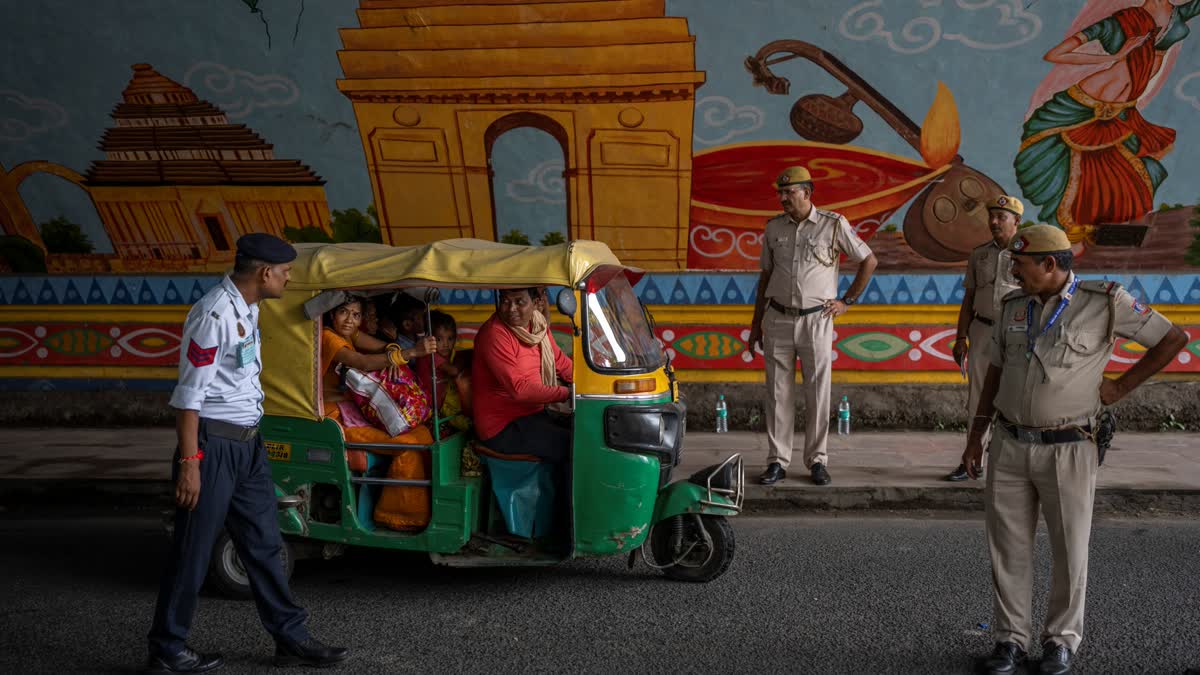NEW DELHI:Leaders of many of the world's biggest economies prepared to huddle in the Indian capital for the Group of Twenty summit Saturday, though growing global rifts and the absence of key players meant that reaching consensus on the thorniest issues could prove elusive.
At least a fifth of G20 heads were not in New Delhi. The leaders of Russia and China opted not to come, ensuring no tough face-to-face conversations with their American and European counterparts over multiple disputes, most acutely the war in Ukraine. Spain's president couldn't make it due to COVID-19, and Mexico's president decided to miss it, too.
Host India hoped the proceedings would not be overshadowed by the European war. It wanted to devote more attention to addressing the needs of the developing world — though it is impossible to decouple many issues, such as food and energy security, from the Ukraine conflict.
Indian Prime Minister Narendra Modi has made giving voice to the Global South a centerpiece of this year's summit.
Also read|G20 Summit 2023| Live Updates | World is here for India; Golden opportunity, says top MEA official
While that may well get broad support, a series of preparatory meetings leading to this weekend's meeting failed to produce agreements due to increasingly fractious rifts among the world's global powers, largely due to differences over Ukraine. Ending the summit without such a statement would underscore how strained relations have become and tarnish the image Modi has tried to cultivate of India as a global problem solver.
Participants arriving in the Indian capital were greeted by streets cleared of traffic, and graced with fresh flowers and seemingly endless posters featuring slogans and Modi's face. Security was intensely tight, with most journalists and the public kept far from the summit venue.
The group was expected to invite the African Union to join as a permanent member, and among the major topics on the agenda were issues critical to developing nations, including alternative fuels like hydrogen, resource efficiency, developing a common framework for digital public infrastructure and food security.
Countries were also expected to address reforming development banks like the World Bank and International Monetary Fund to help make funds more accessible for lower- and middle-income countries as they seek solutions to combat climate change, among other things.
India's lead G20 negotiator, Amitabh Kant, told reporters that boosting climate action and climate financing were key priorities, particularly for developing and emerging markets.
"It was critical that we focused on multilateral organizations and how to redefine and reform them," he said. "Our view was that Global South, developing countries, emerging markets must be able to get long-term financing."
With so many other issues on the table, Human Rights Watch urged the G20 leaders not to let international disunity distract them at the summit.
"Political differences should not deter agreements on critical issues impacting human rights such as the sovereign debt crises, social protection programs, food security, climate change, or internet freedom," said Meenakshi Ganguly, deputy director of the organization's Asia division.
Ganguly added that members should not "shy away from openly discussing challenges like gender discrimination, racism and other entrenched barriers to equality, including with host India, where civil and political rights have sharply deteriorated under the Modi administration."
The summit comes just days after Russian President Vladimir Putin said a landmark deal allowing Ukraine to export grain safely through the Black Sea will not be restored until Western nations meet his demands on Russia's own agricultural exports.
